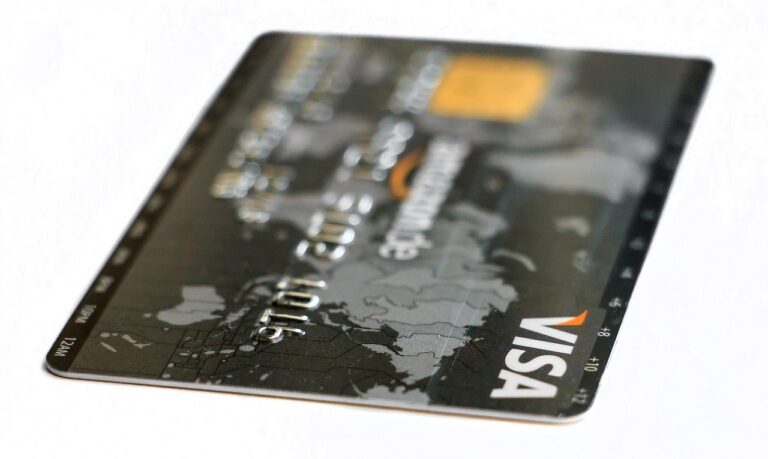Exploring Opportunities for Financial Inclusion Through Digital Payment Gateways: Bet book 250.com, 11xplay online, Yolo 247 login
bet book 250.com, 11xplay online, yolo 247 login: Financial inclusion is a crucial aspect of economic development, enabling individuals and businesses to access and utilize financial services effectively. One of the most significant barriers to financial inclusion is the lack of access to banking services, especially among marginalized populations in developing countries. However, with the rise of digital payment gateways, there is a significant opportunity to bridge this gap and promote financial inclusion on a global scale.
Digital payment gateways are online platforms that facilitate electronic transactions, allowing individuals and businesses to send and receive money digitally. These gateways offer a secure and convenient way to conduct financial transactions, eliminating the need for physical cash or traditional banking services. By leveraging digital payment gateways, individuals can access a wide range of financial services, such as sending money, paying bills, and making online purchases, from the comfort of their homes.
One of the key benefits of digital payment gateways is their accessibility. Unlike traditional banking services that may require individuals to visit a physical branch or meet certain eligibility criteria, digital payment gateways can be accessed through a smartphone or computer with an internet connection. This accessibility is particularly valuable for individuals in remote or underserved areas who may not have access to traditional banking services. By using digital payment gateways, individuals can overcome geographical barriers and participate in the digital economy, regardless of their location.
Another advantage of digital payment gateways is their affordability. Traditional banking services often come with high fees and minimum balance requirements, making them inaccessible to low-income individuals. In contrast, digital payment gateways typically have lower transaction fees and minimal account maintenance costs, making them more affordable for individuals with limited financial resources. By reducing the cost of financial transactions, digital payment gateways make it easier for individuals to manage their finances and participate in the formal financial system.
Moreover, digital payment gateways promote financial inclusion by offering a wide range of financial services tailored to the needs of underserved populations. For example, some digital payment gateways provide micro-loans to small businesses or facilitate peer-to-peer lending among individuals. These innovative financial services enable individuals to access credit and savings products that were previously unavailable to them, empowering them to improve their financial well-being and economic opportunities.
In addition to promoting financial inclusion among individuals, digital payment gateways also benefit businesses, particularly small and medium enterprises (SMEs). By accepting digital payments, businesses can expand their customer base and reach new markets, both domestically and internationally. Digital payment gateways enable businesses to offer convenient payment options to their customers, increasing sales and revenue. Moreover, digital payment gateways provide businesses with valuable data insights and analytics that can help them make informed financial decisions and optimize their operations.
Overall, digital payment gateways have the potential to revolutionize the way financial services are delivered and accessed worldwide. By leveraging digital payment gateways, individuals and businesses can overcome barriers to financial inclusion and participate more actively in the formal financial system. As digital technologies continue to advance and evolve, the opportunities for promoting financial inclusion through digital payment gateways will only grow, creating a more inclusive and equitable financial system for all.
**Heading 1: The Role of Digital Payment Gateways in Financial Inclusion**
Digital payment gateways play a crucial role in promoting financial inclusion by providing individuals and businesses with access to a wide range of financial services. These gateways offer a secure and convenient way to conduct financial transactions, enabling individuals to send and receive money digitally. By leveraging digital payment gateways, individuals can overcome barriers to traditional banking services and participate more actively in the formal financial system. Moreover, digital payment gateways promote financial inclusion by offering innovative financial services tailored to the needs of underserved populations, such as micro-loans and peer-to-peer lending.
**Heading 2: Accessibility and Affordability of Digital Payment Gateways**
One of the key benefits of digital payment gateways is their accessibility. Unlike traditional banking services that may require individuals to visit a physical branch or meet certain eligibility criteria, digital payment gateways can be accessed through a smartphone or computer with an internet connection. This accessibility is particularly valuable for individuals in remote or underserved areas who may not have access to traditional banking services. Moreover, digital payment gateways are more affordable than traditional banking services, with lower transaction fees and minimal account maintenance costs. By reducing the cost of financial transactions, digital payment gateways make it easier for individuals to manage their finances and participate in the formal financial system.
**Heading 3: Financial Services Offered by Digital Payment Gateways**
Digital payment gateways offer a wide range of financial services tailored to the needs of underserved populations. For example, some digital payment gateways provide micro-loans to small businesses or facilitate peer-to-peer lending among individuals. These innovative financial services enable individuals to access credit and savings products that were previously unavailable to them, empowering them to improve their financial well-being and economic opportunities. Moreover, digital payment gateways provide businesses with valuable data insights and analytics that can help them make informed financial decisions and optimize their operations.
**Heading 4: Benefits of Digital Payment Gateways for Businesses**
In addition to promoting financial inclusion among individuals, digital payment gateways also benefit businesses, especially small and medium enterprises (SMEs). By accepting digital payments, businesses can expand their customer base and reach new markets, both domestically and internationally. Digital payment gateways enable businesses to offer convenient payment options to their customers, increasing sales and revenue. Moreover, digital payment gateways provide businesses with valuable data insights and analytics that can help them make informed financial decisions and optimize their operations.Overall, digital payment gateways have the potential to revolutionize the way financial services are delivered and accessed worldwide. By leveraging digital payment gateways, individuals and businesses can overcome barriers to financial inclusion and participate more actively in the formal financial system. As digital technologies continue to advance and evolve, the opportunities for promoting financial inclusion through digital payment gateways will only grow, creating a more inclusive and equitable financial system for all.
**Heading 5: Challenges and Opportunities in Digital Payment Gateways**
While digital payment gateways offer significant benefits for promoting financial inclusion, they also face challenges such as cybersecurity threats and regulatory compliance requirements. However, with the right strategies and partnerships, these challenges can be overcome, unlocking new opportunities for expanding financial inclusion through digital payment gateways. By collaborating with governments, financial institutions, and technology providers, digital payment gateways can enhance their security measures and comply with regulatory requirements, ensuring a safe and seamless user experience for individuals and businesses.
**Heading 6: Conclusion**
In conclusion, digital payment gateways have the potential to transform the landscape of financial inclusion by providing individuals and businesses with access to a wide range of financial services. These gateways offer a secure and convenient way to conduct financial transactions, enabling individuals to overcome barriers to traditional banking services. By leveraging digital payment gateways, individuals can access credit, savings, and payment services that were previously unavailable to them, empowering them to improve their financial well-being and economic opportunities. Moreover, digital payment gateways benefit businesses by expanding their customer base and optimizing their operations. As digital technologies continue to advance and evolve, the opportunities for promoting financial inclusion through digital payment gateways will only grow, creating a more inclusive and equitable financial system for all.
**FAQs**
**Q1: How secure are digital payment gateways?**
A1: Digital payment gateways employ advanced security measures, such as encryption and multi-factor authentication, to protect users’ financial information and prevent fraud.
**Q2: Can individuals without a bank account use digital payment gateways?**
A2: Yes, individuals without a bank account can use digital payment gateways to send and receive money, pay bills, and access other financial services.
**Q3: What are the fees associated with using digital payment gateways?**
A3: Digital payment gateways typically have lower transaction fees and minimal account maintenance costs compared to traditional banking services.
**Q4: Can businesses accept digital payments through their websites?**
A4: Yes, businesses can integrate digital payment gateways into their websites to accept online payments from their customers.







